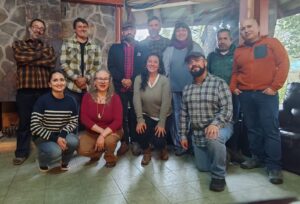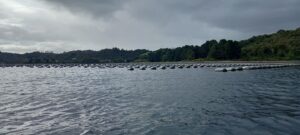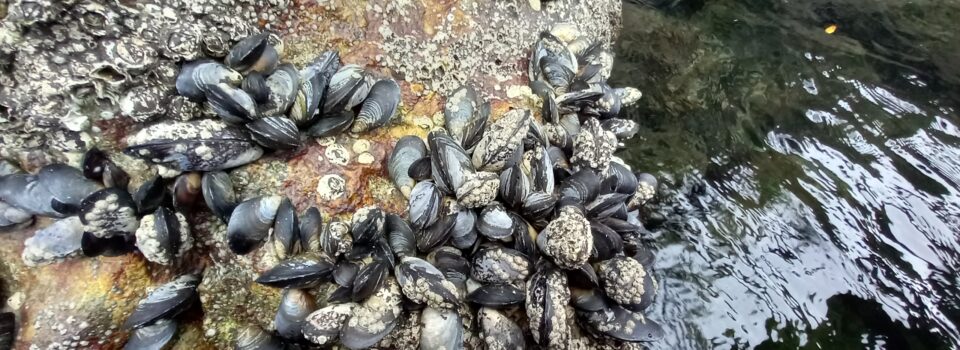IFOP participates in Scientific Workshop on Mussel Aquaculture organized by the SECOS Millennium Institute
November 25th, 2024 Macarena Herrera Abaroa, researcher of the Larval Monitoring of Mussels of the Aquaculture Division of the Fisheries Development Institute (IFOP), was invited to the 2nd Scientific Workshop of the Learning Platform on Mussel Farming of the Millennium Institute in Coastal Socio-Ecology (SECOS). The event took place from October 23 to 25, 2024 in Valle Las Trancas, Ñuble Region.
Macarena Herrera Abaroa, researcher of the Larval Monitoring of Mussels of the Aquaculture Division of the Fisheries Development Institute (IFOP), was invited to the 2nd Scientific Workshop of the Learning Platform on Mussel Farming of the Millennium Institute in Coastal Socio-Ecology (SECOS). The event took place from October 23 to 25, 2024 in Valle Las Trancas, Ñuble Region.
The workshop focused on three socio-ecological systems, among which the Mollusk Aquaculture platform stood out. IFOP’s participation in this space reinforces its commitment to scientific advancement in aquaculture and to the implementation of sustainable practices in the production of mussels in Chile.
 The event brought together leading SECOS researchers, including Drs. Bernardo R. Broitman, Stefan Gelcich, Cristian A. Vargas, Pilar Haye, Felipe Vázquez, Marco Lardies, Nelson Lagos and Valeska San Martín, along with PhD candidates Nicole Castillo and Felipe Torres. In this edition, researcher Macarena Herrera provided a valuable external perspective with her presentation on “Territorial Perception of Mussel Seed Capture”, based on surveys from the IFOP Mussel Larval Monitoring Program, an effort that has contributed to the mussel farming sector for 13 years.
The event brought together leading SECOS researchers, including Drs. Bernardo R. Broitman, Stefan Gelcich, Cristian A. Vargas, Pilar Haye, Felipe Vázquez, Marco Lardies, Nelson Lagos and Valeska San Martín, along with PhD candidates Nicole Castillo and Felipe Torres. In this edition, researcher Macarena Herrera provided a valuable external perspective with her presentation on “Territorial Perception of Mussel Seed Capture”, based on surveys from the IFOP Mussel Larval Monitoring Program, an effort that has contributed to the mussel farming sector for 13 years.
The central objective of the workshop was to analyze the current and projected state of the industry for 2025 in a global context, identifying both scientific advances and challenges and opportunities in mussel aquaculture. This approach seeks to develop adaptive capacities in the socio-ecosystem, and examine emerging opportunities for the sustainable growth of this industry.
The workshop methodology included the formation of subgroups of researchers, who will work on the preparation of an academic manuscript and a policy brief in Spanish for publication and national dissemination. The incorporation of external co-authors was also a key proposal, aimed at enriching collaborative work and providing multidisciplinary perspectives to the development of mussel aquaculture in Chile.
This type of event not only encourages collaboration and innovation in the sector, but also allows for the formulation of practical recommendations to strengthen its resilience to environmental and economic changes, contributing to the sustainable development of national aquaculture.
For more details on the mussel farming learning platform, visit (socioecologiacostera.cl](https://socioecologiacostera.cl/hacemos/plataformas-de-aprendizaje/)
